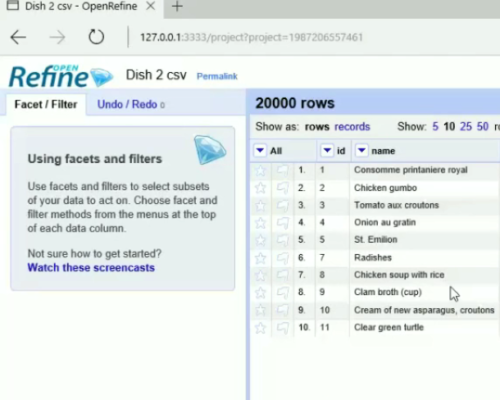On Thursday, October 20 at 6:30pm, Dr. Joshua Miele, of the Smith-Kettlewell Eye Research Institute, gave a talk on “Digital Accessibility and the Making of a Meta Maker Movement” at the Graduate Center, CUNY. Dr. Miele was invited by GC Digital Initiatives to discuss the fundamental understanding of accessibility within the maker movement, and the work he and his team has done to provide blind makers the necessary tools and resources they need to help design their own tools in order to engage in the maker movement. Dr. Miele emphasised the significance of collaboration between blind and sighted people, and the inclusion of blind people throughout the design process and in the management and running of an accessible makerspace.
Category: Resources
NYU Center for the Humanities hosts “Distracted Reading: Acts of Attention in the Age of the Internet” event on Tuesday, September 27, 2016
The NYU Center for the Humanities held an event entitled “Distracted Reading: Acts of Attention in the Age of the Internet”on Tuesday September 27 at 6 p.m. that addressed the concept of “distracted reading,” or the idea that students’ attention is being diverted to technology rather than their class work. Speakers at the event, which was moderated by Marion Thain, Associate…
Protected: DH Events: ‘Distracted Reading: Acts of Attention in the Age of the Internet’ by NYU
There is no excerpt because this is a protected post.
Event Review of Cuneiform Digital Library Initiative Lecture
Sara Sheer Event Review Summary: Professor Robert Englund of the Cuneiform Digital Library Initiative (CDLI) gave a lecture on the digitization of cuneiform texts. He described how the tablets had been scanned, then transcribed, translated, transliterated and annotated into machine-readable-code. This data was then organized into databases for the benefit of researchers. The geographic dispersal of cuneiform texts and…
Introduction to OpenRefine
This tutorial (recorded using SnagIt) is intended to introduce users to OpenRefine, its basic features, and to act as a springboard for a digital humanities project/study that involves great quantities of data. The dataset used in this Skillshare was generated from New York Public Library’s (NYPL’s) crowdsourcing project What’s on the Menu?, where members of the public transcribed menu items from the 1840s to the present. Cleaning datasets is often the first step that needs to be taken when using public datasets, as they are typically messy, and OpenRefine can help users accomplish large-scale data cleaning (and data manipulation).
Overall, this Skillshare intends to introduce users to basic features of OpenRefine in order to make datasets more discernable (particularly for digital humanists who often use public humanities datasets), readying them for further analysis.
“Specialization and Diversity in Dutch and Flemish Printmaking,” a lecture by Matthew Lincoln, The Frick Collection, April 7, 2016
In his lecture “Specialization and Diversity in Dutch and Flemish Printmaking: A Computational Approach,” PhD candidate Matthew Lincoln explored two separate but related questions pertaining to sixteenth- and seventeenth-century Dutch and Flemish printmaking and painting. As part of the Frick Collection’s Digital Art History Lab lecture series, both parts of the lecture addressed how the study of art history can…
“Immersive Narratives: Advertising, Engagement, and Storytelling,” Panel Presented by CUNY
The Immersive Narratives: Advertising, Engagement, and Storytelling panel was held at Baruch’s Performing Arts Center on Thursday, April 7, 2016. It featured three panelists—two from within the advertising industry, and one media professor. At the heart of the presentations and discussions was the concept of immersion and participation in media—how viewers and consumers are no longer just passive audience members.…
Open Source, Web-Based Teaching and the Digital Humanities: “Critical Approaches to Teaching With Web-based Technologies,” Workshop Provided by CUNY Teaching & Learning Center
EVENT IN BRIEF The workshop “Critical Approaches to Teaching With Web-based Technologies,” run by Andrew G. McKinney of the CUNY Graduate Center’s Teaching & Learning Center, centered around the exploration and implementation of non-proprietary, web technologies for educational purposes. We discussed important technologies, resources, and concepts such as WordPress, blogs, digital assignment hybridization, educational crowdsourcing, and online community engagement, as well…
“At The Edge of the Network: Undersea Cables and Deep Infrastructure”, a presentation by Nicole Starosielski for CUNY Graduate Center
At this CUNY Graduate Center event, digital humanist Nicole Starosielski discussed her recent book The Undersea Network and the GIS project that she developed alongside it. The project, Surfacing.in, comprises a network of annotated cable landing locations in a manner that allows a user to explore the way signals travel throughout the network of cables that run through and around the Pacific ocean. In addition to demonstrating the project, Starosielski discussed constructing network layers and edges, displaying cultural context in a dynamic mapping context, and the role that ecological identity can play in the development of information networks.
Protected: Social Media Scraping for Qualitative Research with Sarah DeMott, New York University, February 11, 2016
There is no excerpt because this is a protected post.


